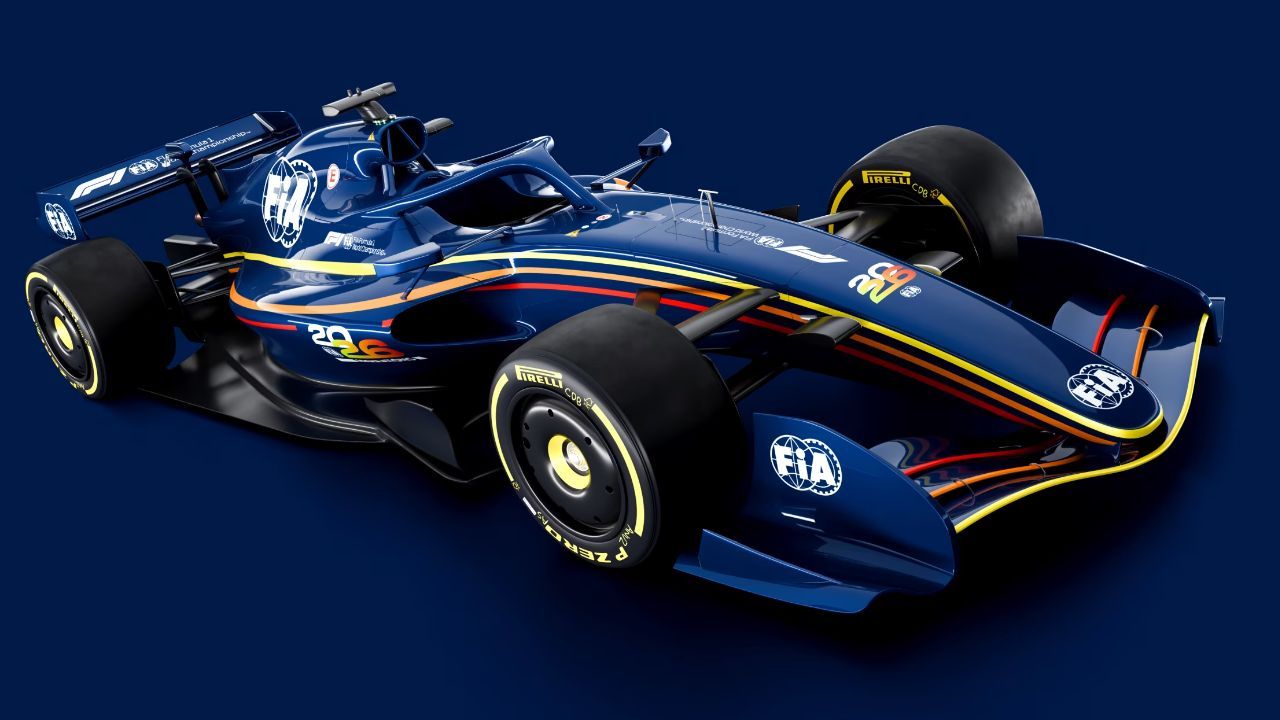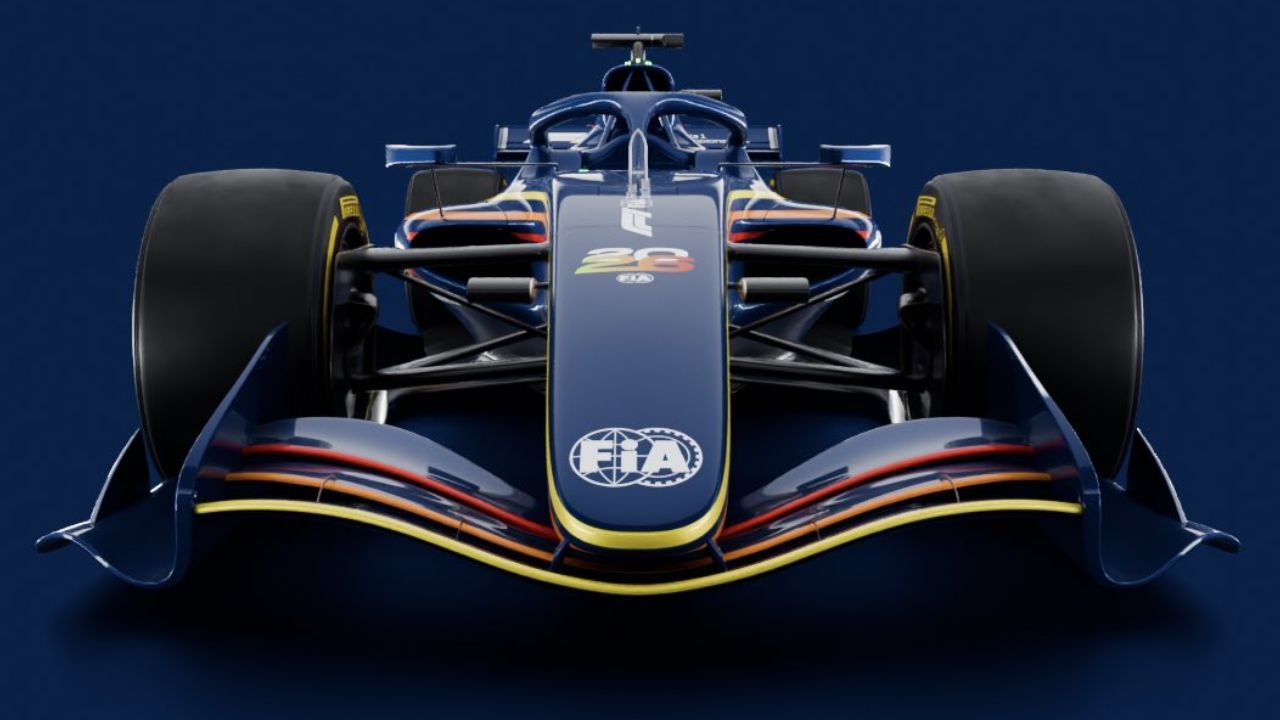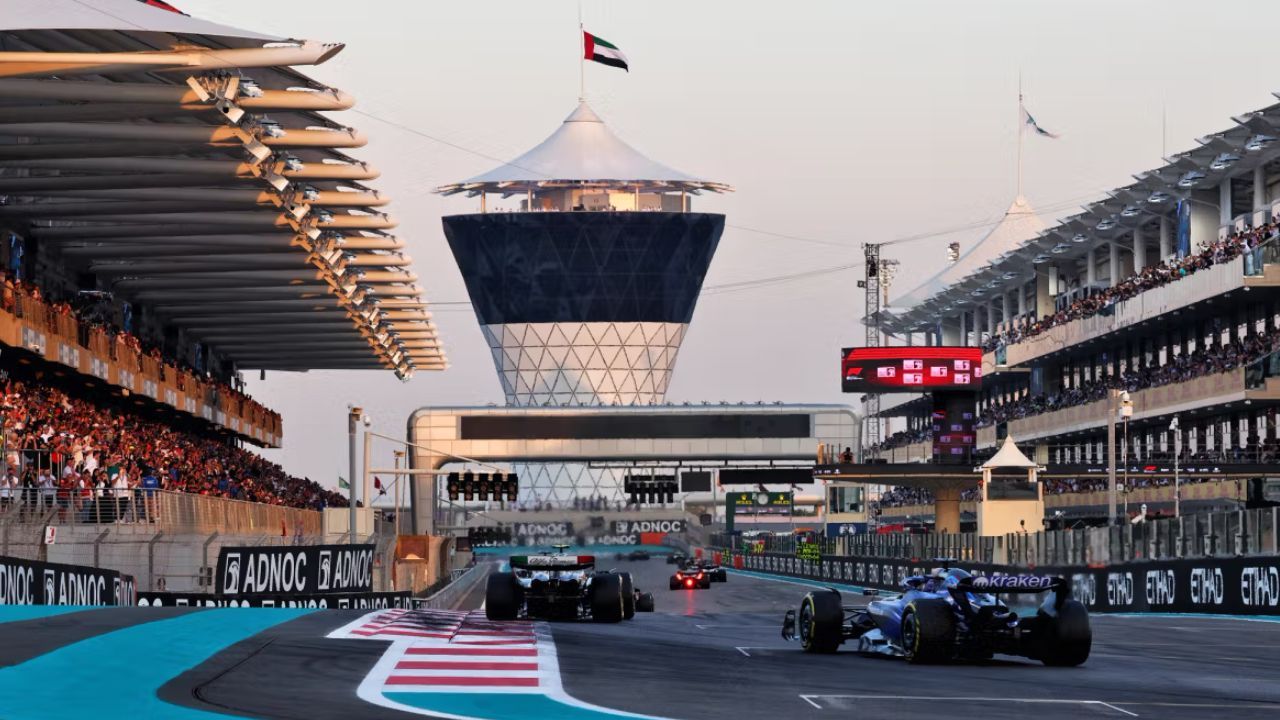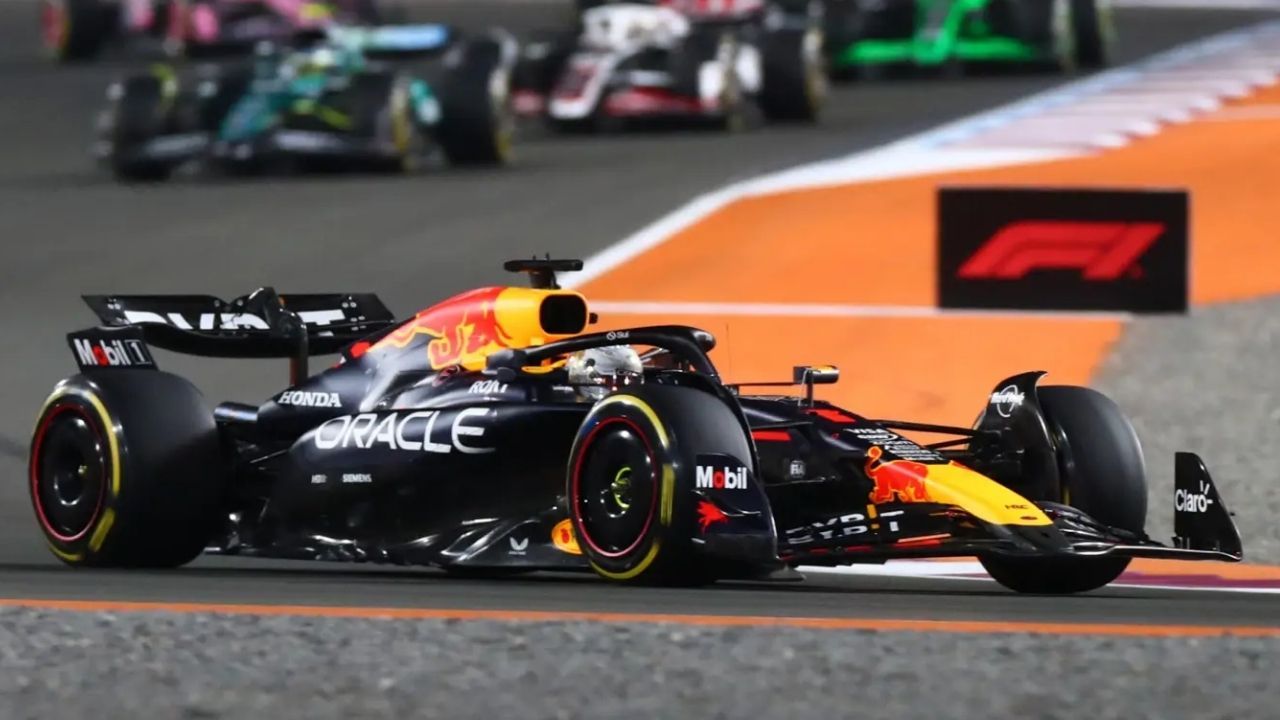F1 2026 Technical Rule Changes Explained; Includes Active Aero, No DRS and More
Ahead of the Canadian Grand Prix, the FIA revealed the 2026 F1 regulations and highlighted essential features of the 'nimble' car concept, which will debut with the new power units and the required use of completely sustainable fuel.
By Divyam Dubey

Formula 1 unveiled concept designs for their radically different 2026 race cars. These futuristic machines are set to be officially approved later this month and boast a complete overhaul aimed at creating closer racing. Sustainability is a major focus, with the cars mandated to run on entirely eco-friendly fuels. The FIA, the sport's governing body, is targeting a lighter and nimbler breed of car. This will be achieved by shrinking the overall size: the cars will be 100mm narrower and 200mm shorter in wheelbase while shedding 30 kilograms of weight. Downsizing also extends to the tyres, with fronts becoming 25mm narrower and rears 30mm narrower.
But the biggest game-changer might be the new active wing system. These adjustable wings will allow drivers to switch between two configurations, prioritizing either higher cornering speeds or lower drag for overtaking manoeuvres. This should create more opportunities for close racing and thrilling battles on the track. While the 18-inch wheel size introduced in 2022 remains, another key change is the reduction in downforce and drag by 30 per cent and 55 per cent respectively. This aims to address the dirty air problem that plagues current F1 cars, where a leading car disrupts the airflow behind them, making it difficult for the following car to stay close enough to challenge for a pass.
Also Read: F1: Indian F2 Driver Kush Maini Completes First Formula 1 Test With Alpine
F1: No More DRS
Formula 1 is shaking things up with a brand new wing system for their 2026 cars. Forget DRS! This active aero system gives drivers two options: wings for tight corners with high downforce (Z-mode), or wings for blasting down straights with low drag (X-mode). According to FIA, this should make racing much closer, as drivers can choose the best setup depending on the situation.

FIA designed these adjustable front and rear wings to work together seamlessly in either mode. Unlike DRS, which is limited to specific zones and relies on chasing another car, X-mode is all about pure speed. Z-mode, on the other hand, is for taking corners like a champ.
Also Read: F1: Sergio Perez to Continue with Red Bull until 2026, Renews Contract
For easy overtakings, the FIA has a backup strategy which is a temporary engine power boost for the car behind. While the leader loses power as they reach higher speeds, the chasing car gets a short burst of extra juice to help them make the pass. This way, even without DRS, exciting overtaking manoeuvres are still very much on the table.





